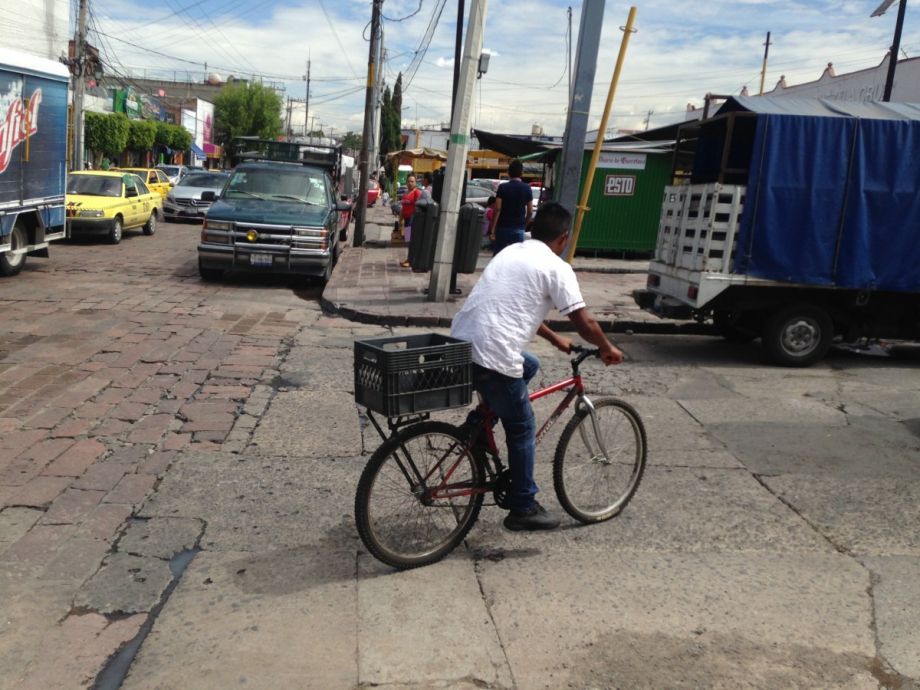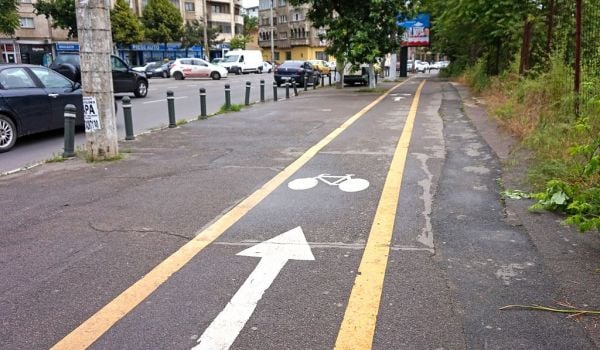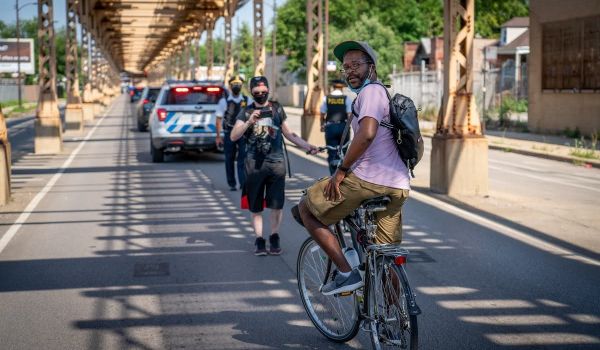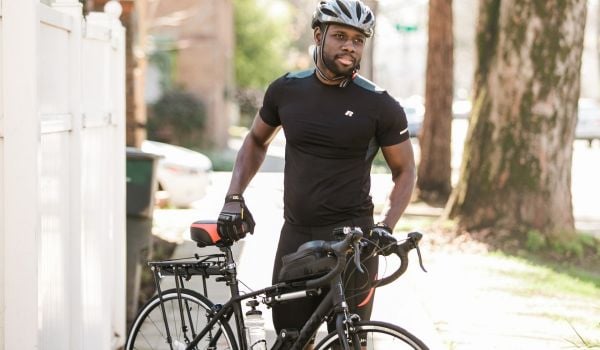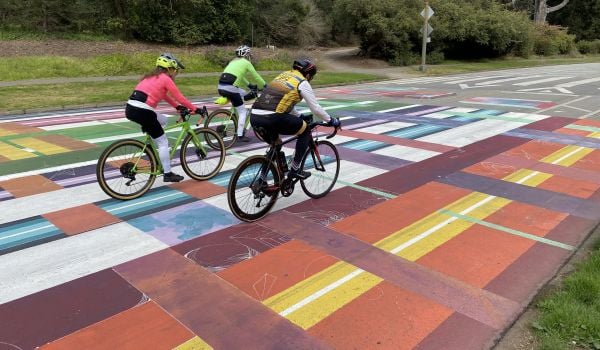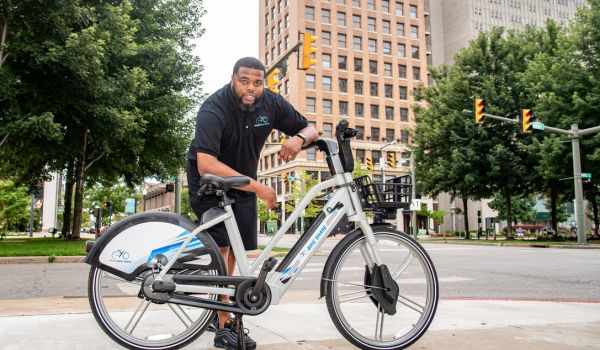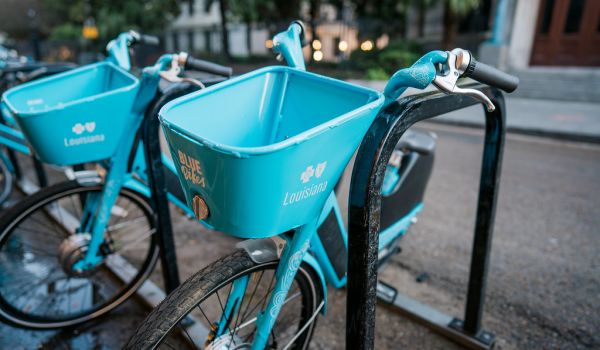Every Wednesday evening, Gustavo Uribe leads hundreds of cyclists through the winding streets and past colonial facades of Querétaro, Mexico’s historic downtown. Riders huddle together; they’re accompanied by a police escort and a support van draped with a banner thanking drivers for their patience.
Uribe volunteers with Saca La Bici (“Bring out your bike”), which started the weekly rides in 2009. He talks about the organization in quasi-revolutionary terms.
“This is a peaceful protest movement,” he says. “We’re reclaiming space in the public way for cyclists. All our infrastructure here was constructed for cars, and we’re trying to show people there’s a better way.”
Uribe’s frustrations are common among local cyclists, but things in Querétaro may be changing. A new municipal transportation plan outlines the city’s aspiration for bike-share, and statements by local officials suggest they are considering the use of pedal-assist electric bikes for the system.
Sometimes referred to as a pedelec, a pedal electric bicycle uses a motor to augment the power generated by pedaling. The models reduce the exertion necessary to ride uphill or over difficult terrain. If installed in Querétaro, pedelec bicycles would provide an accessible introduction to urban cycling for people who might not otherwise consider it. While other cities such as Birmingham, Alabama, and Madrid have successfully launched pedelec bike-share networks, Querétaro’s system would be among the first of its kind in the developing world.
According to Mexico’s National Institute of Statistics and Geography, Querétaro’s population swelled from roughly 324,000 in 1980 to 880,000 in 2016. During that same period, its urban footprint grew from about 2.8 square miles to 40.2 square miles, representing a decrease in population density from 115,714 residents per square mile to only 22,000 residents per square mile. Not surprisingly, traffic jams are a fact of life.
Despite the obvious need for non-automotive forms of transportation, there are many reasons bike-share will be a difficult sell in Querétaro: The city lacks even basic bike infrastructure; its terrain is hilly; many streets are cobblestoned; there is little semblance of a local cycling culture. Municipal data indicate that fewer than 1 percent of daily trips are taken by bicycle, and 90 percent of residents think of the city as an unsafe place to bike. On one major thoroughfare, several windows are adorned with banners opposing the city’s plan to reconfigure streets to accommodate bike traffic.
Still, local leaders are moving ahead with plans to install the system by January 2018. Noé Javier Hernández Castellanos, who works in the office of Querétaro’s secretary of mobility, says city officials are waiting to review proposals from bike-share technology providers before deciding whether pedelec bicycles will be part of the network.
While research suggests pedelecs effectively broaden the appeal of urban cycling, they also present a number of logistical challenges. Foremost among them: balancing battery lifespans with lengthy recharging sessions.
“With electric bikes, you add [a] layer of logistics on top of the traditional bike-share logistics problem, which is already really hard and one of the most expensive parts of the process,” says Chris Cherry, assistant professor of civil and environmental engineering at the University of Tennessee, Knoxville.
Cherry’s research focuses in part on understanding how cities can overcome the unique logistical hurdles presented by pedelec bike-share. He says Querétaro officials and their private sector partners may have to choose between connecting each docking station directly to an electrical utility and tasking users with swapping out drained batteries for freshly charged ones.
Building chargers into the docking stations could mean locating bikes on the basis of available electrical connections rather than travel patterns. What’s more, the fleet would be diminished during hours in which demand is outweighed by the number of bikes tethered to the dock for recharging. On the other hand, a system in which users are responsible for replacing their batteries could mean costly investments in surplus batteries, battery charging stations and additional security measures to prevent theft. Whether either of these options is technologically feasible or cost-effective in Querétaro remains an open-ended question.
Having seen a previous plan for bike-share derailed by allegations of corruption, local cyclists like Uribe of Saca La Bici are skeptical that the network — whether it uses traditional bicycles, pedelecs or a combination of the two — will be up and running any time soon. Still, they are hopeful that officials are beginning to take note of the need for substantive bike infrastructure in the city.
“What they’re saying all sounds good, but we’ll see what happens,” he says.
Paolo Cisneros is a freelance journalist and community development consultant based in Querétaro, Mexico. He holds a master's degree in urban planning and policy from the University of Illinois at Chicago.

